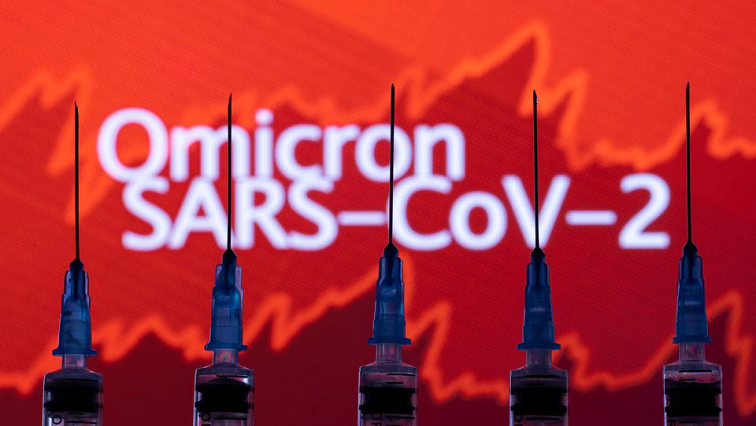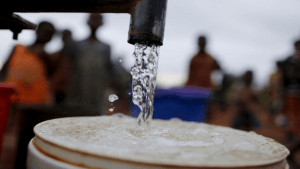The National Institute for Communicable Diseases (NICD) says there has been an increase in hospital admissions of children infected with COVID-19.
This emerged during a virtual media briefing on the country’s state of readiness to respond to the new Omicron variant and the rise in infections.
The variant may be more transmissible, compared to previous variants, but this has yet to be confirmed.
Public Health Specialist at the NICD, Waasila Jassat says the vaccination of adults will likely protect the children from the spread.
“Given the fact that children under 12 can’t vaccinate because they are not eligible and we saw in the third wave as well a shift in more admissions of children and we are seeing a change in the shift of more admissions of children in this wave as well and we not sure if it’s related to the variant circulating and the higher transmissibility and also because of the immunity gap with older people already being vaccinated and younger people being more susceptible but what we do know is that vaccination in the adults around the children will likely protect the children from the spread as well.”
Omicron
According to the KwaZulu-Natal Research Innovation and Sequencing Platform (CRISP), as many as 90% of the new cases in Gauteng are caused by Omicron.
The Tshwane district remains the city with the highest number of new cases and hospital admissions, in both the public and private sector. However, increases in other districts in Gauteng are emerging.
The Department of Health has noted an increase in hospital admissions in young children below two years old. Acting Deputy Director-General for Hospital Services Dr Freddy Kgongwana says, currently, the Tshwane District hospital, the Steve Biko Academic hospital and the Jubilee hospital in the province have the highest numbers of COVID-19 admissions.
“We have 4 407 designated COVID-19 beds in Gauteng, out of the 18 344 beds that Gauteng health has always been having. Out of the 4 407 beds, we’ve got 1 078 patients admitted and we have a total of 3 329 beds available.
More than 2 800 COVID-19 cases were recorded across the country on Sunday and six deaths.
#COVID19 UPDATE: A total of 29,245 tests were conducted in the last 24hrs, with 2,858 new cases, which represents a 9.8% positivity rate. A further 6 #COVID19 related deaths have been reported, bringing total fatalities to 89,797 to date. See more here: https://t.co/SGGwO0lI02 pic.twitter.com/cCm1yzjtun
— NICD (@nicd_sa) November 28, 2021
The majority of new infections – over 2 300 were recorded in Gauteng.
‘No need to panic’
Despite the increase in infections, Health Minister Dr Joe Phaahla says there’s no need to panic.
“We want to say to all South Africans that there is absolutely no need to panic. We have been here before, this is nothing new, we are now more than-20 months experienced in terms of the Covid-19 waves. Our medical scientists are working daily to study this virus such as the transmissibility of this virus, whether there is increased re-infection, for those who have been infected before and those who are already vaccinated.”
Health Minister Dr Joe Phaahla:
With Gauteng accounting for 80% of new infections, the Gauteng Department of Health says they are fully prepared to deal with the fourth wave.
Kgongwana says, “We decided from the end of the third wave that we are going to continue to monitor the beds that we have been allocated to COVID-19, – the 4 407. And these are the resources we will take to the fourth wave. So we have been preparing for the fourth wave since the end of the third wave. In terms of security of oxygen, we can boldly say we are secure because that is exactly what we went through in the third wave and we have been monitoring that throughout.”
The public has been urged to continue following all COVID-19 protocols to minimise the spread of the virus.
Department of Health briefs media following President’s nation address on Sunday:
‘Vaccines expected to provide protection’
Earlier on Monday, renowned epidemiologist, Professor Salim Abdool Karim, warned that breakthrough COVID-19 infections are likely – amid the emergence of the new Omicron variant. However, Karim says he believes vaccinated people are less prone to experience severe symptoms.
The new variant was detected by South African scientists last week – and is spreading across several countries around the world. Karim says the vaccines currently being administered are still expected to provide protection against severe disease, hospitalisation or COVID-19 related deaths.
“Based on what we know and based on the other variants of concern which have reacted to vaccine immunity, we can expect that we will still see high effectiveness from hospitalisation and severe disease. That protection of the vaccines is likely to remain strong. So we don’t know this definitively as the studies are being done but based on what we know we can expect that this is the likely scenario – that the vaccines should hold well in terms of preventing hospitalisations and severe disease as they depend on T-cell immunity and less on antibodies.” -Additional reporting by Risha Maduray.






